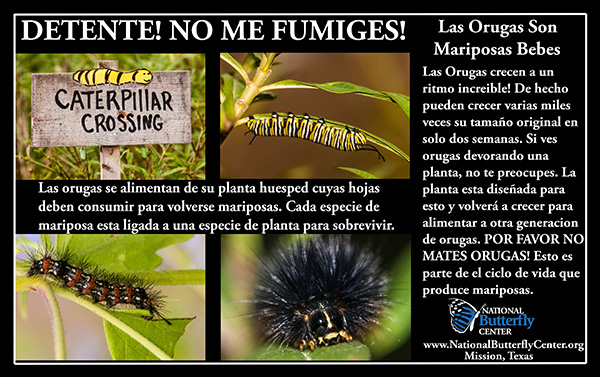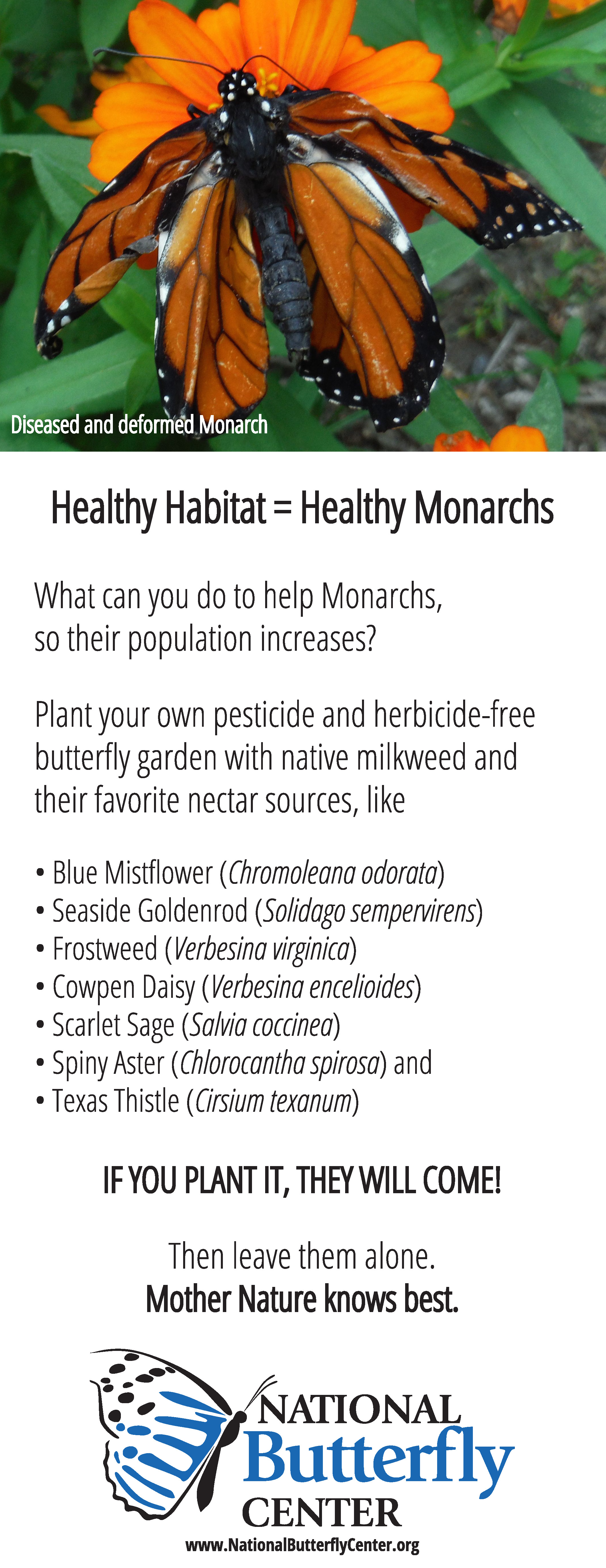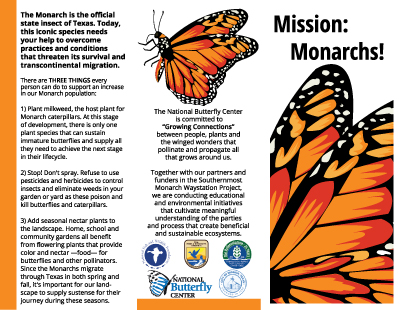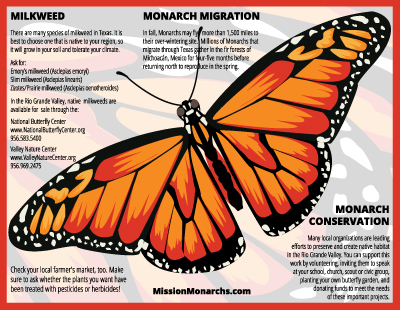Stop! Don't Spray Me!
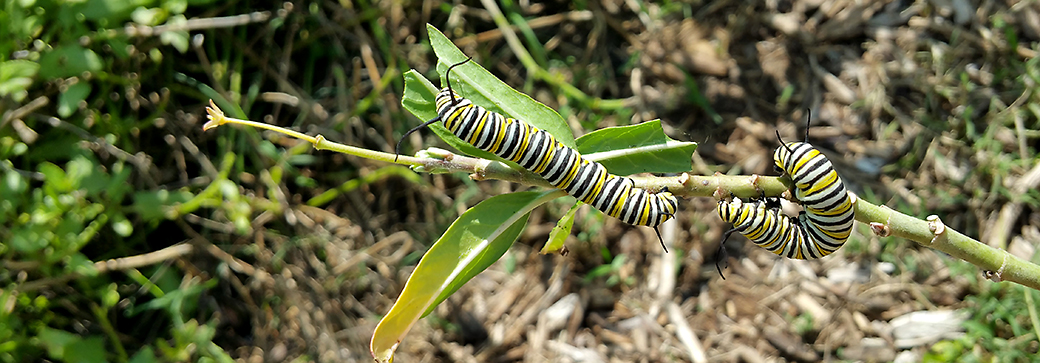 Too often, people mistake the hungry “worms” devouring their gardens plants for pests, instead of recognizing them as baby butterflies (and sometimes moths). If you choose to spray them with pesticide to save your plant, neither the caterpillars nor the plant will fulfill their destiny. After all, caterpillars are not some strange, destructive parasite; they are simply butterflies in a different stage of their lifecycle.
Too often, people mistake the hungry “worms” devouring their gardens plants for pests, instead of recognizing them as baby butterflies (and sometimes moths). If you choose to spray them with pesticide to save your plant, neither the caterpillars nor the plant will fulfill their destiny. After all, caterpillars are not some strange, destructive parasite; they are simply butterflies in a different stage of their lifecycle.
Caterpillars and host plants go together like April showers and May flowers. They are designed to work together in a way that promotes growth and beauty. With milkweed, for example, caterpillars may consume all of the leaves on a plant, leaving only the bare stalk—but this does not destroy the plant. The plant has served one part of its purpose, and this process initiates re-growth and flowering.
As the plant puts out new leaves and buds, the caterpillar forms its chrysalis and prepares to emerge (eclose) in about 14 days. Anticipating the arrival of the adult monarch, the milkweed prepares to burst into bloom. Flowering leads to pollination and seed creation that will eventually produce more milkweed plants to support generation after generation of Monarchs!
For us to help the Monarch rebound, we must restore native plant habitats with lots of milkweed and seasonal nectar. Why not start your own garden and observe the remarkable relationship between plants and butterflies first-hand?

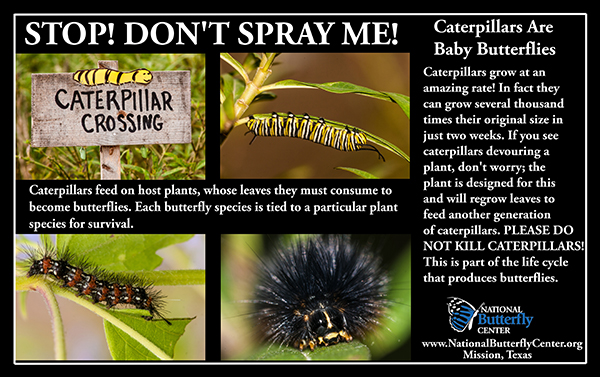 DOWNLOAD ENGLISH SIGN
DOWNLOAD ENGLISH SIGN